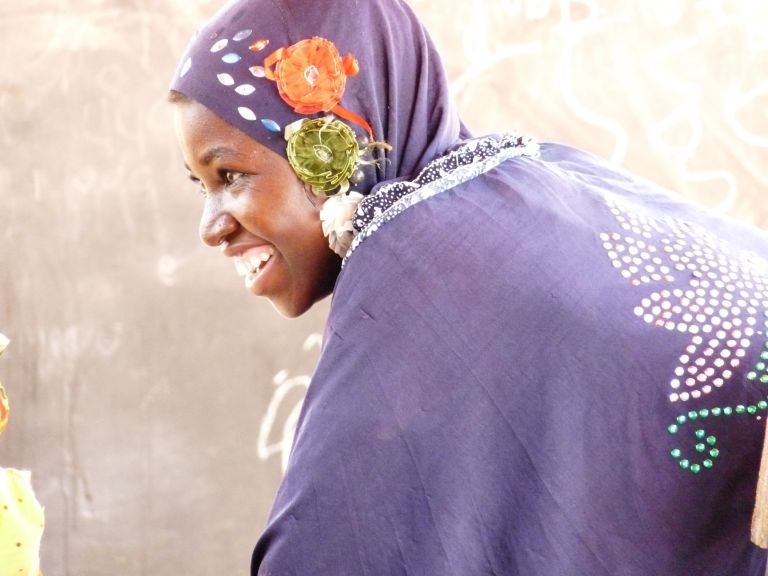As the International Day to End Fistula approaches, efforts focus on raising public awareness and action to end this entirely preventable maternal health tragedy (read a previous SMF post on obstetric fistula here). This is a topic on which I have focused much of my work and research since 2009, and I am happy to say that the prevalence of obstetric fistula appears to be declining – though it is difficult to say if we’ve gotten better at predicting the numbers of women afflicted in sub Saharan Africa and southeast Asia, or if support for surgical treatments and prevention efforts have begun to produce results. I like to think it is both.

As a physical therapist and researcher, I have been recently immersed in projects related to data analysis – looking at success of fistula repairs and identifying deficits in care that may be addressed by women’s health physical therapy, also known as pelvic and obstetric physical therapy. (If you’ve been following Share Mayflowers this month, you must already know there are many ways we can offer help to women and even prevent the need for repeat surgeries and improve future childbirth experiences to reduce pelvic floor damage in the future.)

In this most recent research, I found it easy to get distracted by the numbers, double checking the data analysis and the references. I need to remind myself to step back and recognize that each ‘observation’ is a woman … or in many cases, a girl. A girl who has been subjected to child marriage at age 7 and had a pregnancy at age 12. Yes, this was the youngest in the recent study I was working on in Bangladesh. I recall reading comments from a reviewer for a previous paper on obstetric fistula in the DR Congo … “my heart goes out to the 5 year old.” I had forgotten – just for a minute – about each individual in my set of data. And in remembering, my heart went out to each one of them.

For many of us in the Western world, this is easy to forget because most women receive prenatal care. It is easy to, in fact, be completely ignorant to the tragedy of obstetric fistula elsewhere in the world. In the Western world, women are able to give birth in a hospital or attended by a skilled midwife. As a result, obstetric fistula is essentially eradicated here. Yet, this was a problem that our grandmothers or perhaps great grandmothers faced not more than 100 years ago.

Dr. Lewis Wall writes of obstetric fistula as one of the few tropical diseases for which we have a cure, but for socio-political reasons, choose not to address. The solution is simple in some respects – end child marriage, educate girls, offer prenatal care and increase awareness of reproductive health. We do not need laboratory research or novel cures. It is entirely possible to end obstetric fistula. We just need to decide that girls are worth the effort.

To learn more, please check out one or more of the following:
International Day to End Fistula: End Fistula. Restore Women’s Dignity.
Fistula Foundation – In Observance of the International Day to End Obstetric Fistula
Worldwide Fistula Fund – A Celebration for International Day to End Obstetric Fistula
~*~*~*~*~*~*
The above article was written by physical therapist and MPH candidate, Laura Keyser, an integral part of Share MayFlowers, and someone who is wholeheartedly dedicated to domestic and global women’s health. Thank you Laura!
ABOUT LAURA KEYSER
Laura Keyser, MS, DPT received both her Master’s and Doctorate in Physical Therapy from the joint program at the University of California, San Francisco/San Francisco State University. She has worked in a variety of clinical settings in the U.S. gaining extensive experience in pediatrics, neurological and post-trauma rehabilitation and women’s health.
In 2009, Laura joined the International Pediatric Outreach Project as co-director of the Rehabilitation Initiative. She launched the Initiative’s first program at HEAL Africa hospital in the Democratic Republic of Congo. Living and working in this region of Africa for nearly 2 years, Laura served as clinical faculty, designing and instructing a rehabilitation curriculum for local providers, and developing a comprehensive program for women and girls with obstetric and traumatic fistula. She has published and lectured on her work in global health and community-based care in low-resource settings. Laura continues to work globally, consulting with local and international groups working in Africa and Asia, including Global Strategies, Engender Health and the Harvard Humanitarian Initiative. Laura now resides in Baltimore, MD, where she maintains a clinical practice, while pursuing a Master’s in Public Health from Johns Hopkins University.

3 thoughts on “International Day to End Fistula”